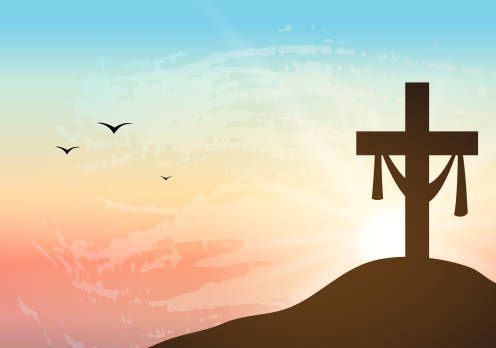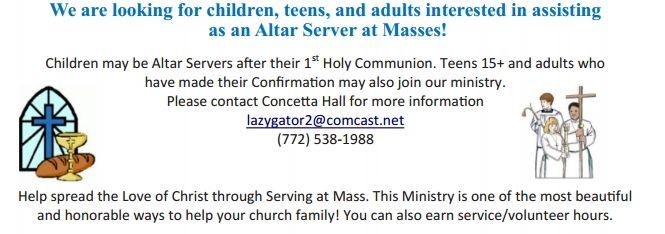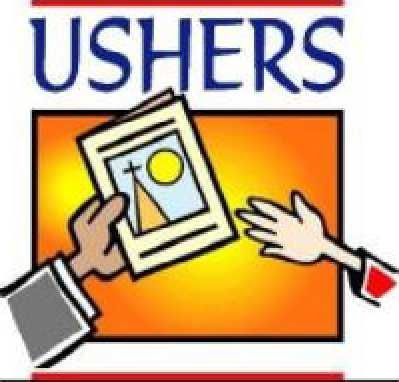Holy Week is the most significant week in Catholicism. Spanning from Palm Sunday to Holy Saturday, it marks the final stretch before Easter Sunday, the celebration of Jesus' Resurrection
HOLY WEEK During this sacred week Catholics pray and reflect on the profound journey of Jesus’ suffering, sacrifice, and victory over death. It starts on Palm Sunday, a day that commemorates Jesus' entry into Jerusalem. Holy Thursday celebrates the Last Supper and the institution of the Eucharist while Good Friday reflects on Jesus’ death by crucifixion. Throughout this week, Catholics reflect on the emotional intensity of Jesus' Passion, contemplate His boundless love and mercy, and anticipate the joyous hope of His Resurrection. An intentional Holy Week can serve as a spiritual pilgrimage that deepens our faith.
Palm Sunday, a week before Easter, commemorates Jesus' triumphant entry into Jerusalem. Catholics carry blessed palm branches into church, symbolizing the crowd's welcoming gesture. The Gospel readings recount the story of Jesus' death and Passion, evoking reflection on His sacrificial love and the profound significance of Holy Week. You can reflect on this passage by reading the Gospel of Mark Chapter 11, verses 1-11. Return to top
Sunday Mass on Palm Sunday includes two readings from the Gospels. We hear about when Jesus entered Jerusalem at the start of Mass. And we read the entire Passion account during the Liturgy of the Word. A great way to start your Holy Week is by reflecting on Jesus’ passion.
After attending Mass it’s common to display the palm branch you received at Mass! Some place it behind a crucifix, some take several palm branches and weave them together to create a palm cross. Since palm branches are a blessed item they should not be thrown in the trash. If you do not want to keep your branch you can return it to the church where it will be burned for ashes the following Ash Wednesday.
It’s also common to deep clean your home on Monday, Tuesday, or Wednesday. This tradition arises from the Jewish custom of preparing the home for Passover. Holy Week is also a great time to receive the Sacrament of Reconciliation - many churches have increased opportunities for Confession during this time. Return to top
Tenebrae (“shadows” or “darkness”) is a Holy Week service that is at least 1,000 years old. Originally held in after midnight but later held at a variety of times, Tenebrae would be sung each day of the Triduum in a church lit only by 15 candles. These were extinguished one by one until the church was left in darkness.
At that point, a loud noise (“strepitus”) would be produced – sometimes by slamming a hymnal or other book shut, sometimes by stomping on the floor – symbolizing the earthquake after Christ’s death.
Like the “lessons and carols” services familiar at Christmas, Tenebrae consists of hymns and readings, the ones proper to Lauds and Matins for the days of the Triduum. Until the mid-1950s, when the Easter Vigil had been revived, nearly every parish in the United States sung Tenebrae on Holy Thursday, Good Friday, and Holy Saturday. Today, churches with Tenebrae services usually sing them once, on a Lenten evening – not necessarily during the Triduum.
Our Service Is Wednesday at 7:00 PM Return to TOP MENU
Holy Thursday is the first day of the Easter Triduum, the most sacred days of the Catholic faith. It begins with the Mass of the Lord’s Supper, commemorating the Last Supper celebrated by Jesus and his disciples on the Jewish holiday of Passover. It’s not a Holy Day of Obligation, but many Catholics attend Mass. During this Mass, the priest washes the feet of some members of the parish in memory of Jesus washing the feet of his disciples. It was during the Last Supper that Jesus taught his disciples that the Eucharist is truly His Body and Blood. Jesus’ disciples were the first Catholic priests. So during the Last Supper, he taught them the importance of the Eucharist, and why priests celebrate Jesus’ sacrifice during every Mass. Because of this, the Last Supper is also significant because it was the beginning of the priesthood.
Our Masses are at 9 AM and 6 PM
Return to top
A Prayer for Holy Thursday
Jesus,
In these last few days leading up to Easter, as I recall your passion and death, let me remember that, above all, I am called to feed your sheep. You have given me a model of how to live; may I strive to be all that you created me for, spreading the love of God and the truth of our Catholic faith wherever I am able. You are the way, the truth, and the life.
Amen.
Why is it called Good Friday?
Good Friday commemorates the day Jesus died and saved us from our sins. His death and Resurrection on Easter is the most important event, which is why it’s called “good”. On this day Catholics fast and remember the suffering of Jesus when he died on the cross. It’s the only day of the year in which Catholic Mass is not celebrated. Instead many Catholic Churches have a Stations of the Cross prayer service, as well as a Veneration of the Cross service. It’s traditionally a day of solemn prayer.
Our Services
3:00 PM Lords Passion
4:30 PM Community Soup Kitchen
7:00 PM Live Passion Play
How to Observe Good Friday
Maintain an element of silence throughout Good Friday. Don’t listen to music in the car and turn off distractions. Work to intentionally make it a day of quiet and reflection. Move a crucifix to a place of prominence in your home. The hours of noon until three in the afternoon are especially solemn, as this was the time of Jesus’ crucifixion. Attend a Veneration of the Cross service or Stations of the Cross prayer service during this time. And read the Passion accounts in the Gospel (or watch a movie adaptation) to reflect on the agony of Jesus’ sacrifice for all of us. Return to top
How to Observe Holy Saturday
While there is no Mass offered until the Easter Vigil, many churches host a short prayer service in the morning. This is an opportunity to read the Morning Prayer together as a group. If you have not yet received the Sacrament of Reconciliation during Holy Week this is a good time to go. Most churches spend the afternoon preparing for the Easter Vigil so you can volunteer to help with set up as well!
Holy Saturday is typically a day of preparation for Easter Sunday. Families can dye Easter Eggs, a symbol of new life, in preparation for the celebration of new life in the Resurrection. Return to top
Our Services
10:00 AM Blessing of the Food
7:30 PM Pascal Vigil
What is the Easter Vigil?
The Easter Vigil is the Mass celebrated on Holy Saturday and it begins the Easter celebrations of Jesus’ Resurrection. It begins with a bonfire outside of the church, and Mass attendees light candles that slowly illuminate the church. Many readings from the Old Testament that foretold Jesus’ death and resurrection are read. It’s also the day that new catechumens, those who are entering the Catholic Church, receive the Sacraments for the first time. Return to top
What is Easter Sunday?
Easter Sunday is a continuation of the celebration of Jesus’ resurrection. It’s a Holy Day of Obligation because the Mass celebrates the most important teaching in the Catholic faith - that Jesus died for our sins and rose from the dead so that we could share eternal life with him in heaven. Attending the Easter Vigil counts towards your Mass obligation.
MASSES at 7:30, 9:30 & 11:30 AM
Special Overflow Mass 9:45 AM LeSage Hall
How to Celebrate Easter
Jesus won our salvation for us! We are freed from sin! Alleluia!
Easter reflections can focus on hope and the symbols we see during Easter Vigil and Easter Mass - especially the idea of darkness into light. It’s tradition to wear new clothes to Mass. And some families bring Holy Water containers to refill from the Baptismal fount.
Read the accounts of the Resurrection in the Gospels during any family celebrations and reflect on the amazement the disciples must have felt when the tomb was empty. How would you respond? Reflect on this past Lenten season and how you can continue growing in your spiritual life throughout the Easter season. Return to top







































































































